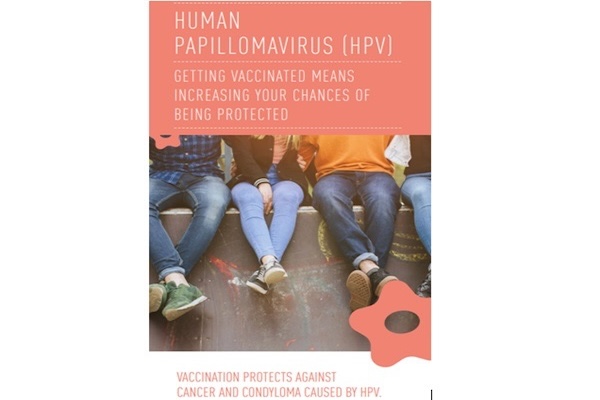
On Monday 28 April 2025, the Health Directorate of Luxembourg’s Ministry of Health and Social Security published the results of a survey carried out on vaccination coverage of the human papillomavirus (HPV) among young people aged nine to 20 living in Luxembourg.
Conducted between March and June 2024 and published on the occasion of European Immunisation Week 2025, the survey assessed HPV vaccination coverage by age and sex, as well as the willingness to vaccinate among those not yet vaccinated. The ministry stated in a press release that the data obtained provided important insights that can be used to guide public policy and prevention efforts against HPV, which is responsible for several preventable cancers, including cervical, anogenital and oropharyngeal cancers.
The survey revealed that the overall high vaccination coverage in Luxembourg, was close to the targets set by the World Health Organization (90% of fifteen-year-old girls fully vaccinated) and the Centres for Disease Control and Prevention (80% of girls and boys aged thirteen to fifteen fully vaccinated) by 2030.
In Luxembourg, 83.9% of fifteen-year-olds (both sexes) have received at least one dose of HPV vaccine and 77.4% have completed their vaccination schedule of two doses.
Vaccination coverage is reported to be particularly high among fifteen-year-old girls, reaching 87.3% for at least one dose and 81.8% for two doses, demonstrating strong adherence to vaccination recommendations. Among boys - more recently included in the vaccination strategy - the rates are slightly lower, particularly among the older age groups.
The survey also revealed that 80% of unvaccinated girls and 67% of unvaccinated boys intend to be vaccinated before the age of fifteen. If these young people do get vaccinated, the vaccination coverage could reach 93% among girls and 74% among boys under fifteen. However, significant hesitancy remains among unvaccinated young people aged fifteen to 20, more than half of whom are undecided about vaccination.
HPV is one of the most common sexually transmitted infections. Although often asymptomatic, this virus can cause serious lesions, including cancers of the cervix, oropharynx, anus and penis.
The ministry stated that, in Luxembourg, HPV vaccination is universally recommended for girls and boys aged nine to fourteen, with catch-up vaccinations possible up to the age of 20. The ministry added that results of this survey were encouraging and demonstrated the commitment of residents and healthcare professionals to combating preventable HPV-related diseases.
However, disparities in vaccination coverage, particularly among boys and young adults, as well as vaccine hesitancy, highlighted the need to strengthen awareness and vaccination catch-up efforts.








